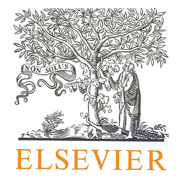دانلود ترجمه مقاله شایستگی فرهنگی در آموزش روانشناسی بالینی
| عنوان فارسی |
شایستگی فرهنگی در آموزش روانشناسی بالینی: بررسی کیفی دانشجو و تجربیات دانشگاهی |
| عنوان انگلیسی |
Cultural Competence in Clinical Psychology Training: A Qualitative Investigation of Student and Academic Experiences |
| کلمات کلیدی : |
آموزش روانشناسی بالینی؛ شایستگی فرهنگی؛ تنوع فرهنگی؛ تحلیل پدیده شناختی تفسیری (IPA)؛ روانشناسی حرفه ای |
| درسهای مرتبط | روانشناسی بالینی |
| تعداد صفحات مقاله انگلیسی : 10 | نشریه : Wiley |
| سال انتشار : 2017 | تعداد رفرنس مقاله : 34 |
| فرمت مقاله انگلیسی : PDF | نوع مقاله : ISI |
|
پاورپوینت :
ندارد سفارش پاورپوینت این مقاله |
وضعیت ترجمه مقاله : انجام نشده است. |
1. روش 2. نتایج 3. بحث و بررسی

هدف: سالهای اخیر شاهد افزایش مشخص توجه به شایستگی فرهنگی در شیوه اجرایی روانشناسی بالینی در استرالیا بوده ایم. درحالی که ادبیات گذشته در مورد نیاز به شایستگی فرهنگی رو به گسترش است، اما این اولین مطالعه ای است که تحلیل می کند آموزش و شیوه اجرایی چند فرهنگی چگونه تجربه می شود و چه ارتباطی به مدل های استانداردسازی شده شایستگی فرهنگی دارد. روش: دوازده شرکت کننده (8 دانشجو و 4 استاد: 9 زن و 3 مرد، سنین 22 تا 57 سال) در دو دانشگاه استرالیا در مورد تجربه شان با شایستگی فرهنگی در طی آموزش روانشناسی بالینی، مورد مصاحبه قرار گرفتند. هر مصاحبه نیمه ساختارمند حدود 30 دقیقه طول کشید و بر شناسایی تجربیات و نیازهای آموزشی برای شایستگی فرهنگی تمرکز داشتند. نتایج: تحلیل پدیده شناختی تفسیری دست نوشته ها، سه مضمون اصلی را نشان داد: تجربه فرهنگ، استراتژی های اجرای شایستگی فرهنگی و تجربیات توسعه شایستگی فرهنگی. نتیجه گیری: دانشجویان و استادان یک سوگیری یا اریب «غربی» در آموزش را تجربه کردند و سپس از یک سری استراتژی برای متناسب سازی شیوه اجرایی خود با مشتریان دارای فرهنگ غیرغربی استفاده کردند. این یافته ها نیاز به توسعه شایستگی فرهنگی ساختارمند در برنامه های آموزشی حرفه ای را مورد اشاره قرار می دهند. از روانشناسان بالینی در استرالیا خواسته شد تا در محیط های متنوع از نظر فرهنگی، فعالیت کنند. استرالیا میزبان جوامع مختلف و متنوع، شامل افراد غیربومی و جزایر تنگه تورز و یک جمعیت بزرگ مهاجر است که تقریباً نیمی از جمعیت استرالیا خارج از کشور متولد شده اند یا فرزند یک خانواده مهاجر می باشند (دفتر آمار استرالیا، 2012 الف، 2012 ب). اما، اموزش و شیوه اجرایی روانشناسی بالینی شدیداً به سمت مدل هایی برای سلامت روانی و درمان عمدتاً توسعه یافته برای جمعیت های اروپایی و آمریکای شمالی، گرایش دارند (گیرلینگ، تامسون و لوندبرگ، 2014). این باعث بوجود آمدن نگرانی هایی در مورد کاربردی بودن این مدل های «غربی» در محیط چند فرهنگی، بخصوص در زمینه های غیربومی و بومی شده است (برای مثال، فورد، 2013؛ مک کونوچی، رانزینجن، هاجسون، نولان و سامسون، 2012؛ رانزیجن، مک کونوچی، کلارک و نولان، 2007؛ ویری و بیشاپ، 2005). در نتیجه، رواشناسان نیاز به متناسب سازی فرهنگی شیوه های اجرایی رواشناسی بالینی دارند (خاواجا، مک کارتی، برادداک و دون، 2013؛ نلسون و همکاران، 2014؛ رانزیجن و همکاران، 2007) تا «ایمنی فرهنگی» را هنگام اجرای درمان در سطح چند فرهنگی فراهم سازند (والکر و سون، 2010). بنابراین، شایستگی فرهنگی یک صفت اساسی در روانشناسان بالینی در استرالیا می باشد.
Objective: Recent years have seen a marked increase in attention to cultural competence in clinical psychology practice in Australia. While the body of literature on the need for cultural competence is expanding, this is the first study that analyses how cross‐cultural training and practice is experienced and related to standardised models of cultural competence. Method: Twelve participants (8 students and 4 academics; 9 females and 3 males, ages 22–57) in two Australian universities were interviewed on their experiences with cultural competence during clinical psychology training. Each semi‐structured interview took about 30 min and focused on identifying the training experiences and needs for cultural competence. Results: Interpretative Phenomenological Analysis of the transcripts delivered three master themes: experiences of culture, strategies for culturally competent practice, and experiences of cultural competence development. Conclusions: Students and academics experienced a “western” bias in training, and consequently adopted a variety of strategies to adapt their practice with culturally non‐western clients. These findings draw attention to the need for structured cultural competence development in professional training programs. Clinical psychologists in Australia are required to practice in culturally diverse settings. Australia is home to diverse communities, including Aboriginal and Torres Strait Islander peoples, and a large migrant population, with almost half of Australia’s population being born overseas or being offspring of an overseas-born parent (Australian Bureau of Statistics, 2012a, 2012b). However, clinical psychology training and practice remain strongly oriented towards models for mental health and therapy that were largely developed for European and North American populations (Geerlings, Thompson, & Lundberg, 2014). This raises concerns about the applicability of these “western” models in multicultural settings, especially in Indigenous contexts (e.g., Ford, 2013; McConnochie, Ranzijn, Hodgson, Nolan, & Samson, 2012; Ranzijn, McConnochie, Clarke, & Nolan, 2007; Vicary & Bishop, 2005). Consequently, psychologists need to culturally adapt the practices of clinical psychology (Khawaja, McCarthy, Braddock, & Dunne, 2013; Nelson et al., 2014; Ranzijn et al., 2007) in order to provide “cultural safety” when practicing cross-culturally (Walker & Sonn, 2010). Cultural competence is thus an essential attribute of clinical psychologists in Australia.



دیدگاهها
هیچ دیدگاهی برای این محصول نوشته نشده است.